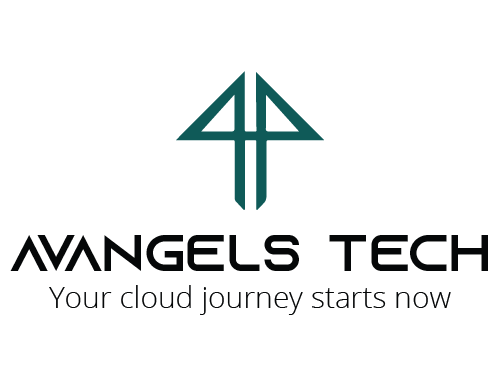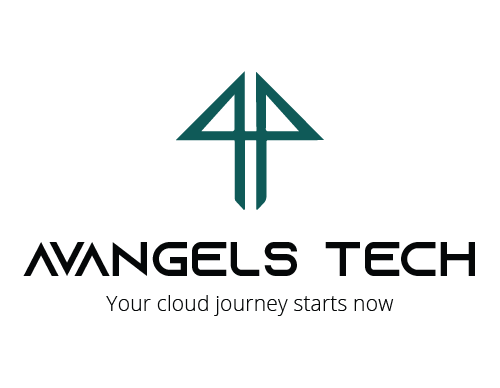Navigating the Cloud Safely
A Deep Dive into Google Cloud Security Command Center
This series of blogs looks at some of the most popular and commonly used services on the Google Cloud Platform. In this blog, we discuss the Google Cloud Security Command Center.
Additional Reading
For an overview of “Google Cloud Security Command Center”, please visit the official Google Cloud website
To use the Google Command Center Console, please visit the official Google website
To get more information on “Google Cloud Deployment Manager”, please click on the attached link.
To get more information on “Google Cloud Compute Engine”, please click on the attached link.
To get more information on “Google Cloud IAM”, please click on the attached link.
To get more information on the Services provided by Avangels Tech, please refer to the attached link.
Introduction
In an era where data is the new currency, ensuring the security of cloud environments is paramount. As businesses migrate their infrastructure to the cloud, they seek robust solutions to protect their data, applications, and digital assets. Google Cloud Security Command Center (SCC) emerges as a powerful ally in this endeavour, offering a comprehensive suite of tools and services designed to enhance the security posture of cloud environments. This powerful tool serves as a centralized hub for managing and monitoring the security of assets across GCP, providing a comprehensive suite of features to fortify your cloud infrastructure.
Cloud computing has become an integral part of modern business operations, providing scalability, flexibility, and cost-effectiveness. However, with the benefits of the cloud come unique security challenges. To address these concerns, Google Cloud Platform (GCP) offers an advanced security solution known as the Google Cloud Security Command Center (Cloud SCC). Google Cloud Security Command Center (SCC) emerges as a comprehensive solution, offering a centralized hub for managing and monitoring security across the Google Cloud Platform (GCP).
In this blog post, we will explore the key features and benefits of Google Cloud SCC, shedding light on how it empowers businesses to proactively safeguard their data and applications.
Understanding Google Cloud Security Command Center
Google Cloud SCC is a unified security and risk management platform that provides a holistic view of an organization’s Google Cloud environment. It enables users to gain insights into their security posture, identify potential threats, and implement effective remediation strategies. By consolidating security data from various Google Cloud services, SCC helps organizations streamline their security operations and respond swiftly to potential risks.
Google Cloud Security Command Center is a centralized security and risk management platform, providing organizations with a unified view of their cloud assets. Its primary goal is to help businesses detect and mitigate security threats proactively, enabling them to respond swiftly to potential risks. It consolidates security findings from various Google Cloud services, third-party tools, and manual inputs into a single dashboard, empowering security teams to make informed decisions and respond rapidly to potential threats.
Key Features of Google Cloud Security Command Center
1. Asset Inventory: SCC automatically discovers and inventories assets across your Google Cloud environment. It categorizes assets, including virtual machines, storage buckets, and databases, facilitating efficient management and monitoring. Having a comprehensive understanding of your assets is crucial for effective security management. SCC provides an automated inventory of all assets within your Google Cloud environment, giving you a clear understanding of your digital footprint. This visibility allows security teams to have a clear understanding of the attack surface and potential points of vulnerability.
2. Security and Risk Insights: The platform analyses data from various Google Cloud services and provides insights into potential security risks. This includes vulnerabilities, misconfigurations, and suspicious activities. The platform provides actionable insights into potential security risks and threats. It categorizes findings based on severity, enabling organizations to prioritize and address critical issues promptly. By consolidating this information, SCC enables organizations to prioritize and address security issues promptly. Security teams can prioritize and remediate issues efficiently by accessing a consolidated view of vulnerabilities and threats. It helps organizations identify and respond to security threats, such as suspicious activity, unauthorized access, or data breaches.
3. Event Threat Detection: Google Cloud SCC employs advanced threat detection capabilities to identify suspicious activities and potential security threats. It leverages machine learning algorithms and anomaly detection to detect patterns indicative of malicious behaviour, providing organizations with timely alerts. Leveraging an event-driven architecture, SCC responds to changes in your environment, ensuring real-time updates and accurate security assessments. It monitors logs and events across your GCP resources, promptly identifying suspicious activities and potential security incidents. It uses advanced threat detection algorithms to identify potential security incidents and alerts administrators for prompt investigation and response.
4. Security Health Analytics: The Security Health Analytics feature helps organizations identify and address misconfigurations and compliance issues within their GCP environment. It provides actionable insights to enhance security configurations and ensure compliance with industry standards and regulatory requirements. Continuous monitoring is essential for maintaining a robust security posture. SCC provides security health analytics, helping organizations assess their overall security status and adherence to industry best practices. This empowers them to proactively address vulnerabilities and strengthen their security measures. Additionally, Security Health Analytics provides recommendations and best practices to enhance your security configurations.
5. Integration with External Tools: Google Cloud SCC integrates seamlessly with external security tools, allowing organizations to consolidate their security information and streamline incident response processes. This interoperability enhances the platform’s effectiveness in managing security across diverse environments. SCC aggregates security findings from multiple sources, such as Google Cloud services (like Cloud Security Scanner and Cloud Monitoring), third-party security tools, and custom detectors. SCC offers a centralized dashboard for monitoring security and compliance metrics. Detailed reports and visualizations aid in understanding trends and identifying areas for improvement, providing a bird’s eye view of the overall security posture. Security teams can track compliance with industry standards and regulations, such as GDPR or HIPAA, and take corrective actions as needed.
6. Vulnerability Scanning: SCC continuously monitors GCP resources for security threats and vulnerabilities. SCC includes automated vulnerability scanning tools that assess the security of cloud resources. It aggregates findings from various sources, such as Cloud Security Scanner, Forseti Security, and third-party security solutions. This centralized view of security findings enables rapid detection and response to potential threats. SCC helps to identify and address potential vulnerabilities in your infrastructure with built-in vulnerability scanning. Google Cloud SCC helps you stay ahead of potential threats by continuously scanning for security issues. It identifies and prioritizes potential vulnerabilities, allowing organizations to take proactive measures to address security risks before they can be exploited.
7. Policy Management: Cloud SCC allows users to define and enforce security policies tailored to their specific requirements. This includes defining rules for resource configurations, access controls, and other security-related settings. Policy violations are flagged, enabling quick remediation.
8. Security Information and Event Management (SIEM) Integration: SCC can integrate with popular SIEM solutions, allowing organizations to centralize their security monitoring and incident response efforts. SCC allows integration with third-party Security Information and Event Management (SIEM) solutions, enabling a seamless flow of security data across the organization’s security infrastructure. This seamless integration enhances the overall security infrastructure and provides a holistic view of security events.
Benefits of Google Cloud Security Command Center
1. Centralized Security Management: SCC offers a unified dashboard, providing a centralized location for managing and monitoring security across Google Cloud services. This centralized approach simplifies security operations, making it easier to detect, investigate, and respond to potential threats. This heightened visibility allows organizations to identify and address security issues in real-time, reducing the likelihood of unauthorized access or data breaches. This simplifies security operations and enhances overall visibility.
2. Timely Threat Detection and Response: By leveraging machine learning and automation, SCC can identify and alert on potential security threats in real-time. The platform’s advanced threat detection capabilities enable organizations to identify and respond to security threats in real time. This proactive approach minimizes the impact of potential breaches. With continuous monitoring and automated threat detection, SCC helps organizations identify and mitigate security risks before they escalate. This proactive approach enhances the ability to respond swiftly to emerging security risks.
3. Scalability: As organizations scale their infrastructure on Google Cloud, SCC scales with them. It can handle a vast number of assets and events, ensuring that security management remains effective regardless of the size of the cloud environment. Cloud SCC is designed to scale with the organization’s growth, supporting a dynamic and evolving cloud infrastructure. It adapts to changes in the environment, making it a flexible solution for businesses of all sizes.
4. Compliance and Reporting: Cloud SCC assists organizations in meeting regulatory compliance requirements by providing tools for monitoring and enforcing security policies. This is particularly crucial for industries with strict data protection regulations. SCC enables continuous monitoring of cloud assets, ensuring that security and compliance postures are maintained over time. Security Health Analytics assists organizations in maintaining compliance with industry standards and regulatory requirements. It provides insights into security and compliance issues, enabling timely remediation.
5. Real-time Monitoring: SCC offers real-time monitoring capabilities, ensuring that security threats are detected and addressed promptly. This is crucial for maintaining the integrity of your cloud infrastructure.
6. Automated Security Insights: Google Cloud SCC leverages automation to provide security insights and recommendations. This reduces the manual effort required for security monitoring and enhances the efficiency of security teams.
7. Integration with Other GCP Services: SCC seamlessly integrates with other Google Cloud services, such as Cloud Identity and Access Management (IAM), Cloud Identity-Aware Proxy (IAP), Cloud Monitoring, and Cloud Logging. This ensures a comprehensive security solution that covers various aspects of your cloud environment. The ability to integrate with SIEM solutions and other security tools enhances the overall effectiveness of Google Cloud SCC. This interoperability ensures that security teams can leverage existing investments in security infrastructure.
8. Efficient Incident Response: Google Cloud SCC streamlines incident response workflows, minimizing the time between threat detection and remediation. SCC streamlines incident response by providing real-time insights into security findings. Automated incident notifications and playbooks facilitate a swift and coordinated response to security incidents. With real-time insights into security findings and threats, organizations can respond promptly to potential incidents.
9. Customization and Flexibility: SCC allows organizations to create custom detectors and integrate them with their existing security tools, ensuring a tailored and flexible security strategy. This adaptability is crucial for meeting specific industry compliance requirements and organizational security policies.
10. Cost Savings and Resource Optimization: By identifying and remediating security risks, organizations can avoid potential financial losses associated with security breaches. Additionally, Cloud SCC helps optimize resource usage by providing insights into unused or underutilized assets.
11. Comprehensive Visibility: The asset inventory and security findings provided by SCC offer a comprehensive view of the GCP environment. This visibility is crucial for identifying weak points and ensuring that security policies are effectively enforced.
Best Practices for Implementing Google Cloud SCC
1. Regularly Review Security Findings: Actively monitor and review security findings generated by SCC. Regular reviews help in identifying patterns and trends, allowing organizations to refine their security strategies.
2. Implement Recommendations: Address security recommendations provided by SCC promptly. This proactive approach helps in reducing the attack surface and mitigating potential security risks.
3. Collaborate Across Teams: Foster collaboration between security teams, operations teams, and developers. Google Cloud SCC serves as a collaborative platform, bringing different stakeholders together for effective security management.
4. Stay Informed About New Features: Google Cloud SCC is continuously evolving. Stay informed about new features, updates, and best practices to leverage the full potential of the platform.
Conclusion
In the dynamic world of cloud computing, Google Cloud Security Command Center emerges as a powerful ally in the ongoing battle against cyber threats. With its centralized approach to security management, automated threat detection, and comprehensive visibility, SCC empowers organizations to fortify their defences and proactively respond to evolving security challenges. As businesses continue to migrate to the cloud, Google Cloud SCC stands as a key component in building a robust and resilient security posture in the digital era.
Google Cloud Security Command Center plays a pivotal role in fortifying the security posture of organizations using Google Cloud services. By offering a centralized hub for security management, continuous monitoring, and proactive threat detection, SCC empowers businesses to navigate the complexities of cloud security with confidence. As the digital landscape continues to evolve, embracing comprehensive security solutions like Google Cloud SCC becomes essential to safeguarding valuable assets and ensuring a resilient security infrastructure.
In conclusion, the Google Cloud Security Command Center is a cornerstone of Google Cloud’s commitment to providing robust and comprehensive security solutions. As organizations continue to embrace the cloud, having a dedicated platform for managing and enhancing security becomes increasingly vital. With its powerful features and seamless integration capabilities, SCC empowers businesses to navigate the complex landscape of cloud security confidently. By leveraging the capabilities of Google Cloud SCC, organizations can fortify their digital fortresses and embark on their cloud journey with confidence.


